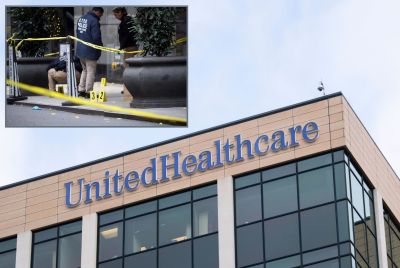Magna sees Opel paying back state loans by 2015
Magna (MGa.TO) will cut about 10,500 Opel jobs in Europe, the bulk in Germany, as it acts to return the carmaker to profit and pay back 4.5 billion euros ($6.55 billion) in state aid, its co-chief executive said.
The Canadian auto parts supplier aims to sign a deal with former Opel parent General Motors GM.UL within two weeks to buy a 55 percent stake together with Russian partner Sberbank (SBER03.MM), Siegfried Wolf said on Monday.
By 2015 we want to pay back the government-guaranteed loans. Opel will be profitable before that, however, Wolf told a news conference.
Around 4,000 jobs in Germany will have to go for Opel to reach profitability, and Wolf said there was a risk an Opel plant in Antwerp may be closed.
He foresaw investing nearly 1 billion euros a year in Opel. Around 170 million euros of the funds it has earmarked would go to finish planned investment in Russia, he said, slamming an Opel trustee for saying 600 million in investments in Russia would come from state aid it gets.
The 170 million would be used immediately, with the rest of the sum being generated from the internal cash flow that will be generated in Russia, he explained.
The Magna co-CEO dismissed talk that car parts customers like Volkswagen (VOWG.DE) could pull contracts from Magna now that it was buying a rival carmaker.
SCRUTINY OF AID PLEDGE
Britain and Belgium urged the European Commission to ensure the takeover of Opel did not favor German workers because of 4.5 billion euros in promised aid from Germany.
Both are wary of the deal with Magna and its Russian allies, under which all four German plants stay open while Antwerp and one of two Vauxhall sites in Britain could close.
It is important to say that the (European) Commission should not accept anything that looks like a political fix or any linkage between aid and retention of jobs in any specific plant or country, British Business Secretary Peter Mandelson told BBC radio.
Germany hopes Magna's expertise will preserve as many jobs as possible in Germany where Opel employs 25,000 people, half its workforce.
Kris Peeters, premier of the Belgian region of Flanders that is home to the Antwerp plant, said he and EU Industry Commissioner Guenter Verheugen had agreed that commercial and economic, not political, factors were paramount in deciding which plants should survive.
We are convinced Antwerp has a fair chance. Antwerp has a better chance than certain German plants, he told reporters.
Verheugen and Competition Commissioner Neelie Kroes were also due to address a European Parliament debate on Opel aid called by former Belgian Prime Minister Guy Verhofstadt.
Another former Belgian prime minister and now foreign minister Yves Leterme engaged European counterparts on the Opel issue on Sunday.
The Commission said it expected to receive details on aid from Germany in the next couple of weeks and said no subsidies could be given before it was satisfied they complied with state aid and internal market rules.
Chancellor Angela Merkel's government, worried about potential job losses before an election on September 27, had openly backed Magna over financial investor RHJ (RHJI.BR).
Germany ringfenced and propped up Opel with a 1.5 billion euro bridge loan in May to ensure it did not get swept into GM's brief bankruptcy proceedings.
The federal and state governments are ready to provide billions more in aid once the Magna deal closes by the end of November. It will then ask other European countries such as Britain, Belgium and Spain to share the cost.
Germany plans to host a meeting of representatives from countries with Opel plants on Tuesday to discuss possible financial contributions.
Flanders has pledged up to 500 million euros.
(Additional reporting by Keith Weir in London, Michael Shields in Frankfurt and Brian Rohan in Berlin; Editing by Dan Lalor)
($1 = 0.6870 euro)





















